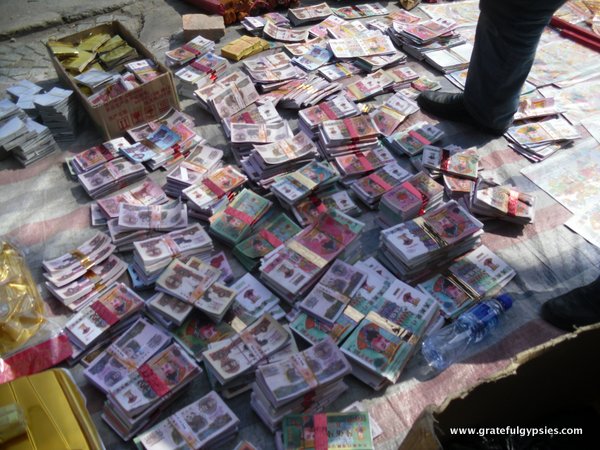Tomb Sweeping Festival Vocabulary Posted by sasha on Apr 4, 2018 in Culture, Vocabulary
Tomorrow is an important holiday in Chinese culture – the Tomb Sweeping Festival. This traditional Chinese festival is all about honoring ancestors who have passed away. Here’s a little background and some Tomb Sweeping Festival vocabulary to help you understand a bit more about this day.
Background
Tomb Sweeping Day is celebrated on the 15th day after the Spring Equinox, and the Chinese name can literally be translated as the “Pure Brightness Festival” (清明节 – qīng míng jié). As with most holidays in China, there is an interesting legend associated with the Tomb Sweeping Festival. It goes back to an ancient holiday known as the Cold Food Festival (寒食节 – hán shí jié), which honored a nobleman named Jie Zhitui who died in an unfortunate fire set by the prince Chong’er. He was simply trying to get Jie out of the forest in order to repay him for his great service. A few days were dedicated to honor him, during which time fire was banned. Because of the history, it’s still a tradition to eat cold food (冷食 – lěng shí).
The main activity around Tomb Sweeping Day is ancestor worship (祭祖 – jì zǔ). On this day, people will make many offerings (祭品 – jì pǐn) to their deceased ancestors. For example, people will burn incense (烧香 – shāo xiāng) or paper money (纸钱 – zhǐ qián). However, the burning of paper money has been banned in many cities due to the pollution it causes. Instead, people use chrysanthemums (菊花 – jú huā) because of their flame-like petals.
On Qing Ming, families will visit a cemetery (墓地 – mù dì) to find the tombs (坟墓 – fén mù) of their ancestors. They will then sweep the tomb (扫墓 – sǎo mù) and leave some offerings such as flowers, cigarettes, food, and even paper iPhones. The belief is that these things can all be used in the afterlife. It’s important to keep the spirits of deceased ancestors happy, as it’s believed that they continue to look after the family from the great beyond.
Thanks to its timing at the start of spring, the Tomb Sweeping Festival is also all about getting outside for a spring outing (踏青 – tà qīng). The most popular activity to enjoy at the start of spring is flying a kite (放风筝 – fàng fēng zhēng). Of course, there’s a special snack to be eaten on these outings – qingtuan (青团 – qīng tuán) – a green dumpling made of glutinous rice. Learn more about Tomb Sweeping Day in this short video and read on for the vocabulary list:
Vocabulary
Here’s a handy list of all the vocabulary words used in the description of the Tomb Sweeping Festival:
寒食节
祭祖
祭品
烧香
纸钱
菊花
冷食
墓地
坟墓
扫墓
踏青
放风筝
青团
hán shí jié
jì zǔ
jì pǐn
shāo xiāng
zhǐ qián
jú huā
lěng shí
mù dì
fén mù
sǎo mù
tà qīng
fàng fēng zhēng
qīng tuán
Cold Food Festival
ancestor worship
offerings
burning incense
paper money
chrysanthemum
cold food
cemetery
grave
sweeping the tomb
spring outing
fly a kite
green dumplings

Build vocabulary, practice pronunciation, and more with Transparent Language Online. Available anytime, anywhere, on any device.





Leave a comment: